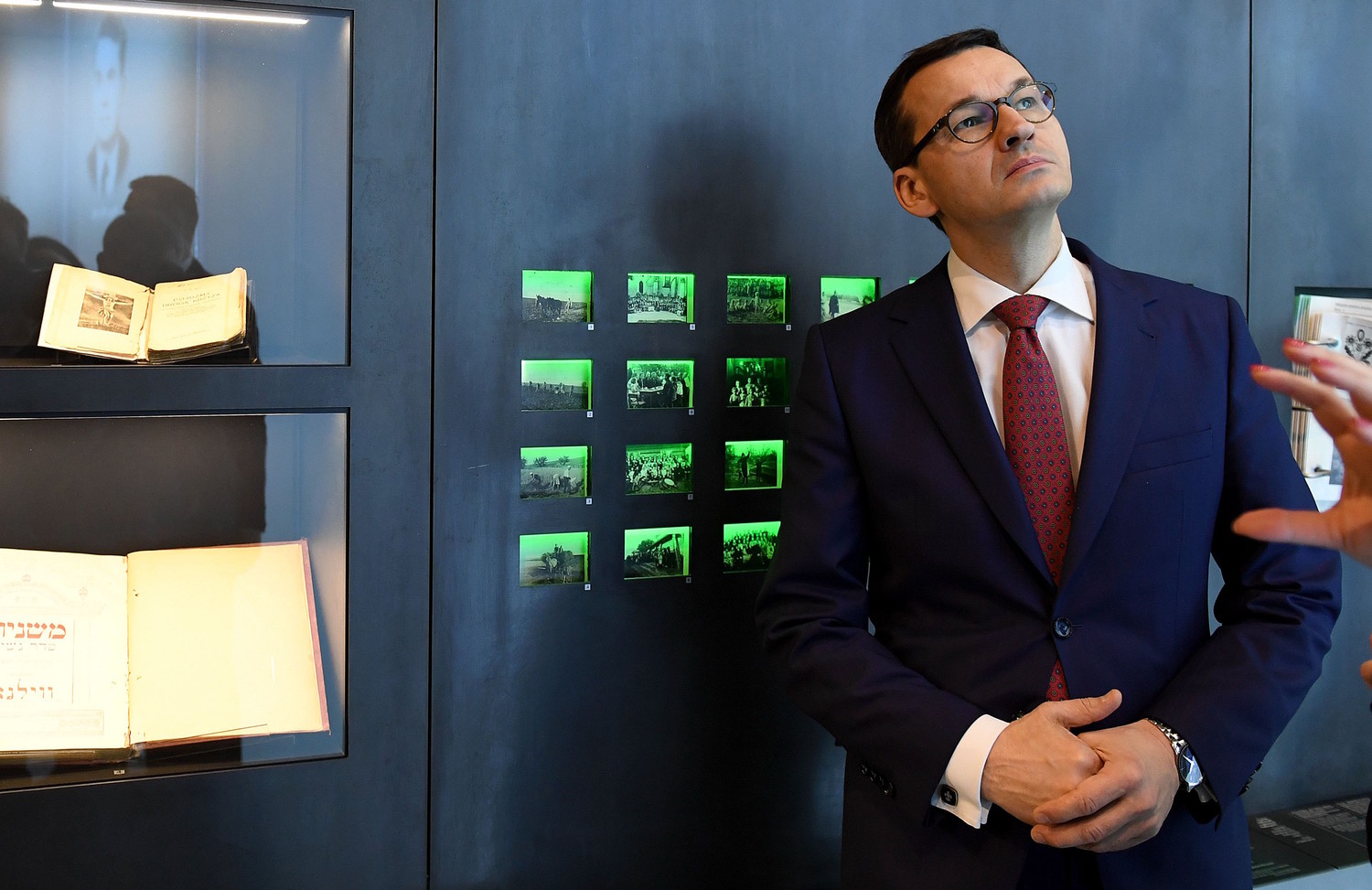Polish-Jewish relations are back from the brink
Poland has removed the most objectionable part of its legislation governing the commemoration of the Nazi era. No longer will historians, journalists, or members of the public face three years’ imprisonment for asserting “that the Polish Nation or the Republic of Poland is responsible or co-responsible for Nazi crimes committed by the Third Reich.”
The decision, secured by a 388-25 majority of the Polish parliament, brings relief to a festering Polish-Jewish dispute that no one wanted. Since the overthrow of communism in 1989, Poland has emerged as a vital component of the transatlantic democratic alliance. That shift was accompanied by a blossoming of Polish-Jewish relations and a flood of new historical research, not least on the circumstances behind the Nazi extermination of 3 million Polish Jews during the period of German occupation.
As the Poles know from their recent past, a key reason authoritarian regimes retain an iron grip upon the flow of information is that they can never be certain where it will lead. So while there was a great deal in the 1,000-year history of Polish Jewry to celebrate, much of the new Shoah scholarship raised the agonizing question of Polish collusion with Nazi persecution of Jews.
The years leading up to the law’s passage were marked by bitter disputes about Poland’s wartime history, often inflected with anti-Semitism. Certain scholars, such as distinguished Princeton University historian Jan Gross, were singled out for opprobrium in Poland’s influential conservative circles, where their research was depicted as a smear on an entire nation’s reputation.
In February of this year, President Andrzej Duda signed into law amended legislation that incorporated a maximum sentence of three years’ imprisonment for those deemed violators. What would compose a violation was never quite clear — certainly the use of the lazy, offensive term “Polish concentration camp” to describe Nazi extermination centers at Auschwitz and Majdanek, but quite possibly any substantive historical inquiry into the Holocaust in Poland that touched upon the issue of collusion.
Duda’s signature was not quite the final act of the drama, as the law was referred to Poland’s judiciary for examination of its impact on constitutional guarantees of free speech. As the summer arrived, the talk in Warsaw was that the Constitutional Tribunal would rule that the law was unconstitutional.
But that’s not how it played out. It was the Polish Prime Minister, Mateusz Morawiecki, who ended the uncertainty by turning to legislators. On June 27, Morawiecki’s ruling party charged down the amendment in Polish parliament, leaving the country’s stunned ultranationalists railing against a fatal compromise with Jewish and American “diktats.”
For the rest of the world — foremost the Israeli government and various global Jewish organizations — the success of Morawiecki’s gamble is a measure of his statesmanship. He applied, rapidly and effectively, a political solution to a political problem; namely, the internationalization of the dispute around the law brought about by the draconian amendment. Now that the threat of imprisonment has been buried, the primary focus of international concern has gone.
But the debate about World War II will continue to reverberate into Poland’s contemporary politics. The Polish state remains deeply invested in preservation of the country’s memory, which means that many key forthcoming decisions — like, for example, whom to appoint as the next head of the International Auschwitz Council — will be political ones. Morawiecki has pledged his willingness to pursue defamation suits against publishers or writers judged to have accused Poland of crimes that are more properly blamed on the Nazis. This view of history as the battleground of Polish national honor inevitably means that dissenting viewpoints will continue to face aggressive responses, only now without the nagging fear of prison.
Many Americans will feel reassured that Poland’s leaders have heeded the views of the outside world. The dispute was never going to disrupt trade or security relations with Poland, but the potential for diplomatic jousting over the law was always there — not just because our respect for the victims of the Holocaust requires that we never simplify or censor their stories, but because we expect Poland, as a fellow democracy, to observe liberal norms of free speech.
In turn, the Poles have a right to expect that American commitments to their security are more than platitudes. If one element of Morawiecki’s goal in defanging the law was to remind us of this fundamental alliance, especially as Donald Trump prepares for his summit with Poland’s bête noire, Russian leader Vladimir Putin, then we should pay heed.

 47.0°,
Fair
47.0°,
Fair 




